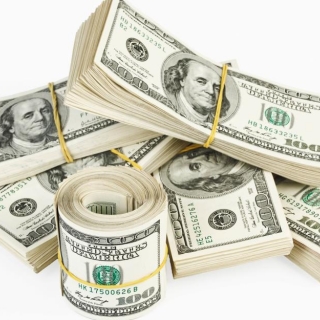


The US dollar index weakened on Wednesday (July 30th), snapping a four-day winning streak as investors remained cautious ahead of the Federal Reserve's policy meeting, following a sharp reaction to the US-EU trade deal earlier this week.
Meanwhile, the euro was poised to post its first monthly decline since December 2024. The Japanese yen strengthened against the dollar after a powerful earthquake struck the Kamchatka Peninsula in Russia's Far East and triggered a tsunami, prompting evacuation warnings across much of Japan's eastern coast.
Forex markets were largely stable as investors hesitated to place bets ahead of key economic reports and central bank meetings in Canada, Japan, and the United States. "Markets will be paying close attention to (Fed Chairman) Jerome Powell's remarks, regarding any signs of internal dissent within the committee and the chairman's stance amid ongoing tensions with the White House," said Julien Lafargue, chief market strategist at Barclays Private Bank and Wealth Management.
"A September rate cut remains a strong baseline scenario; much will depend on incoming data, starting with the US employment report due this Friday," he added. The US central bank is likely to keep rates unchanged on Wednesday.
Analysts note the sell-off in US assets—including US Treasury bonds and the dollar—began in early April, when the US appeared poised to launch a trade war against its key allies.
Trade agreements reached with Japan last week and the European Union over the weekend signaled a renewed US commitment to global engagement, easing investor concerns.
Investors' focus is now on negotiations between China and the US after officials agreed to extend their 90-day tariff truce, following two days of what both sides described as constructive talks in Stockholm.
The euro rose 0.15% to $1.1562 after weakening for the first two days of the week and hitting a one-month low of $1.15185 on Tuesday. The euro has strengthened 11.9% since the start of the year, but is expected to experience its first monthly decline in 2025.
Some analysts have expressed concerns about the economic impact of tariffs and their implications for the European Central Bank's interest rate outlook. However, markets adjusted their expectations for the ECB's easing path, pushing back the timeline for a potential rate cut to March 2026 last week, following the US-Japan trade deal and the central bank's hawkish stance after its policy meeting.
"Comparatively, the outcome (of the trade negotiations) is welcome, although not entirely reassuring (for the euro area)," said Modupe Adegbembo, an economist at Jefferies. "The EU has managed to avoid escalation and has not lost significant ground compared to other major exporters," she added, noting that a 5% base tariff is more favorable than the 30% tariff applied to Chinese goods and equivalent to Japan's 15% tariff.
The 15% US tariffs on European Union goods will dampen eurozone economic growth compared to six months ago, but the reduced risk of a costly trade war will partially offset the impact, ECB policymaker Gabriel Makhlouf said.
The dollar index fell 0.13% to 98.774. It hit a five-week high of 99.143 on Tuesday and is on track to post its first monthly gain this year. (alg)
Source: Reuters
The U.S. dollar was choppy on Tuesday, as investors attempted to gauge the longevity of a flare-up in trade tensions between the U.S. and China. U.S. President Donald Trump has appeared to rein in hi...
The US Dollar found support at the 98.80 area after retreating from the mid-range of the 99.00s on Friday, following Trump's threat to impose 100% tariffs on China. The Index pared losses on Monday bu...
The dollar weakened on Thursday (October 9th), for the first time this week; most G-10 currencies weakened on the day, with the Australian and Canadian dollars outperforming the rest. The Bloomberg D...
The US dollar strengthened on Thursday (October 9th), continuing its gains this week, driven by a weaker euro due to the political crisis in Paris and a weaker yen amid a change in the ruling party le...
The dollar extended its gains for a third day on Wednesday, its longest winning streak since September 19. Most G-10 currencies weakened on the day, with the Canadian dollar outperforming the rest. T...
European stocks fell on Tuesday (October 14th), with the Stoxx 50 and Stoxx 600 both down around 0.3%, as escalating US-China trade tensions weighed on sentiment. Risk-sensitive sectors such as automotive and mining led the decline after Beijing...
Stocks fell Tuesday, resuming the selling seen late last week, as trade worries were reignited overnight by China. The Dow Jones Industrial Average lost 504 points, or 1.1%. The S&P 500 lost 1.3%, while the Nasdaq Composite shed nearly...
Gold (XAU/USD) is taking a breather on Tuesday after surging to a fresh all-time high near $4,179 earlier in the day as safe haven demand remains supported amid intensifying US-China trade tensions, dovish Federal Reserve (Fed) expectations, and...
 European stocks started the week in positive territory, with the STOXX 50 rising 0.9% and the STOXX 600 adding 0.6%, as traders geared up for the...
European stocks started the week in positive territory, with the STOXX 50 rising 0.9% and the STOXX 600 adding 0.6%, as traders geared up for the...
 Asia-Pacific markets traded mixed Tuesday, breaking ranks with Wall Street that soared after U.S. President Donald Trump softened his stance on...
Asia-Pacific markets traded mixed Tuesday, breaking ranks with Wall Street that soared after U.S. President Donald Trump softened his stance on...
 President Donald Trump arrived in the Egyptian resort of Sharm El-Sheikh on Monday for a summit with several other world leaders aimed at ensuring...
President Donald Trump arrived in the Egyptian resort of Sharm El-Sheikh on Monday for a summit with several other world leaders aimed at ensuring...
 Asia-Pacific markets fell Monday after China and the U.S. tightened trade restrictions and traded fresh accusations, renewing tensions between the...
Asia-Pacific markets fell Monday after China and the U.S. tightened trade restrictions and traded fresh accusations, renewing tensions between the...